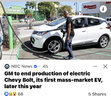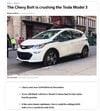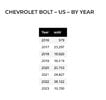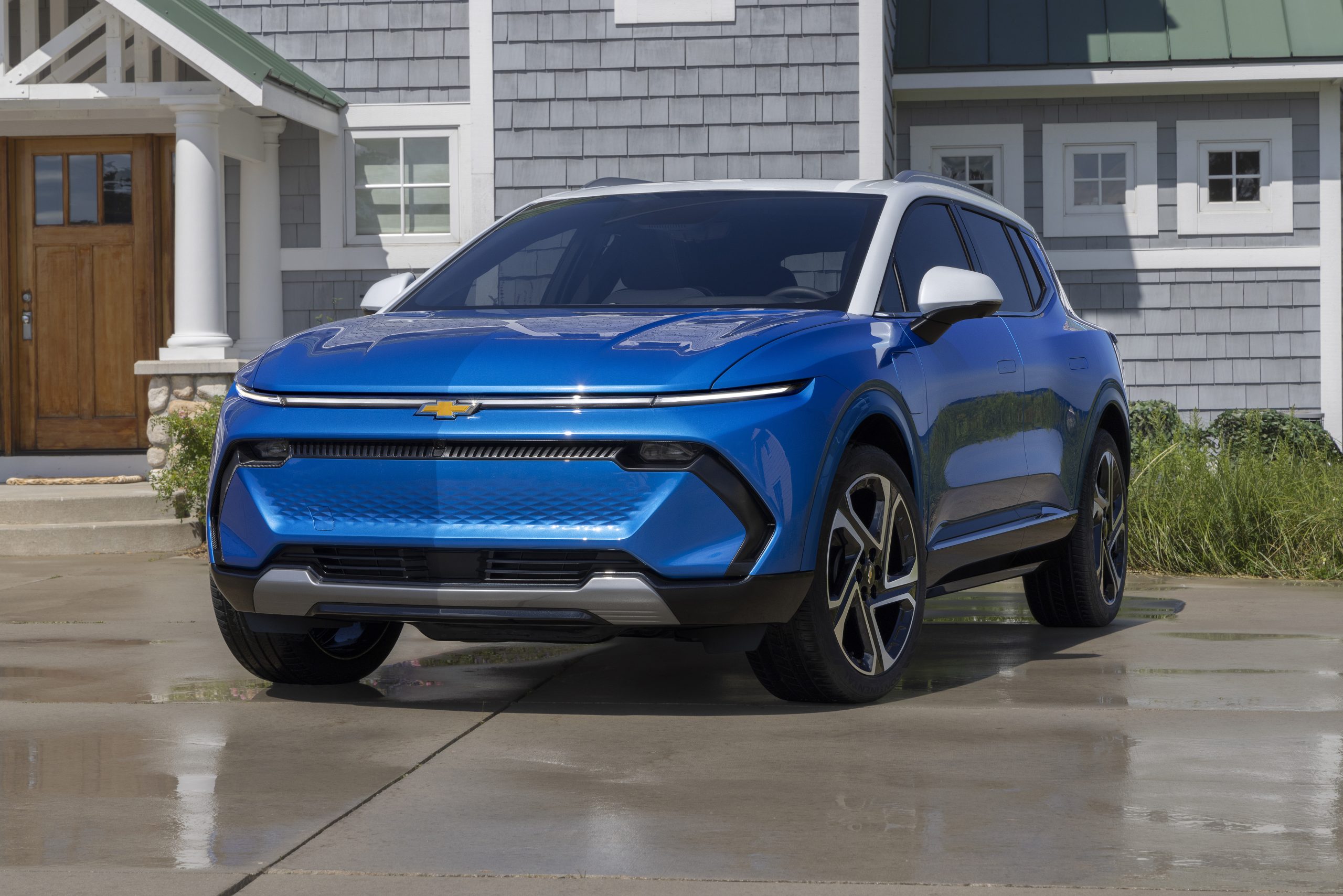I bought a EUV earlier this year, aware of the charging time, but also as a compelling "city car" with more than adequate storage and a "hatchback" design that works as well as the Model Y. The car rides very well, better than my 2018 M3 and easily competitive with any Tesla, and the control setup is very easy to use, more "traditional" with a dash in front of the driver and easy to use button controls for major functions.
The Bolts have a second regen control located on the steering wheel that adds significant range to the car. With an EPA 247 mile range I averaged 4.4 miles/KWh efficiency, equivalent to over 285 miles on a single charge since I've purchased the car, which includes mostly winter driving and early spring with chilly weather. The only downside is the charging speed, and for my use as a second car it's a fine solution. It is also the best priced EV available. After tax credits fees and taxes my net cost was under $25,000 (no state incentives).
But I also value the Tesla for easy of charging and overall capability. When I ordered my EUV last summer the Model Y AWD was priced over $60K and there were no EV tax credits. The cost delta between the two cars was prohibitive - more than double. With the tax credits returning for 2023, and the drop in Tesla prices when I took delivery in January the Model Y was more affordable on a relative basis, especially for the 279 mile range 4680 Austin built version. I began to wonder if I should buy the Tesla instead, but stuck with the Bolt.
When the Model Y fell to $46,990 I went to several large car buying locations (CarMax, Carvana, AutoNation, Cars Direct) and asked what they would pay for my Bolt. I expected that they would low ball the car, aware of the tax credit and low initial cost. Most did, but one offered me more than I paid for the car after tax credits. At that point the net cost of moving into the Model Y AWD including all taxes fees and DMV fees was under $16,000 plus my EUV. That was a deal that I couldn't resist.
So, I sold the Bolt, placed an order for the base Model Y AWD and expected delivery by late May. To my delight a car became available early and I expect to pick it up within a week. The Tesla price shifts were so dramatic that it shifted the entire buying decision for me, and likely for many others.
I also realize that in a few months Tesla will offer a RWD only Model Y in the US (as is available in Canada now), and likely upgrade the range in the new 4680 battery pack to near 400 miles (although they may not want to offer that much range to keep demand for the S/X high). The car costs will likely drop a bit more as well. Despite all of that I'm fine with the swap I just made, and welcome the ability to SuperCharge at will and make the Model Y a true second car without limits for my needs.
The EUV is a great car at a great price and will serve many very well. But it's still limited and likely appeals for price to many people. A RWD Model Y priced at $40K, only $10K more than the BOLT list price with some options, will be tough competition for anyone. Elon seems to realize this and his bet on cost reductions due to scaling and Giga Press manufacturing efficiencies is a bold move that may make Tesla untouchable as a value proposition.






